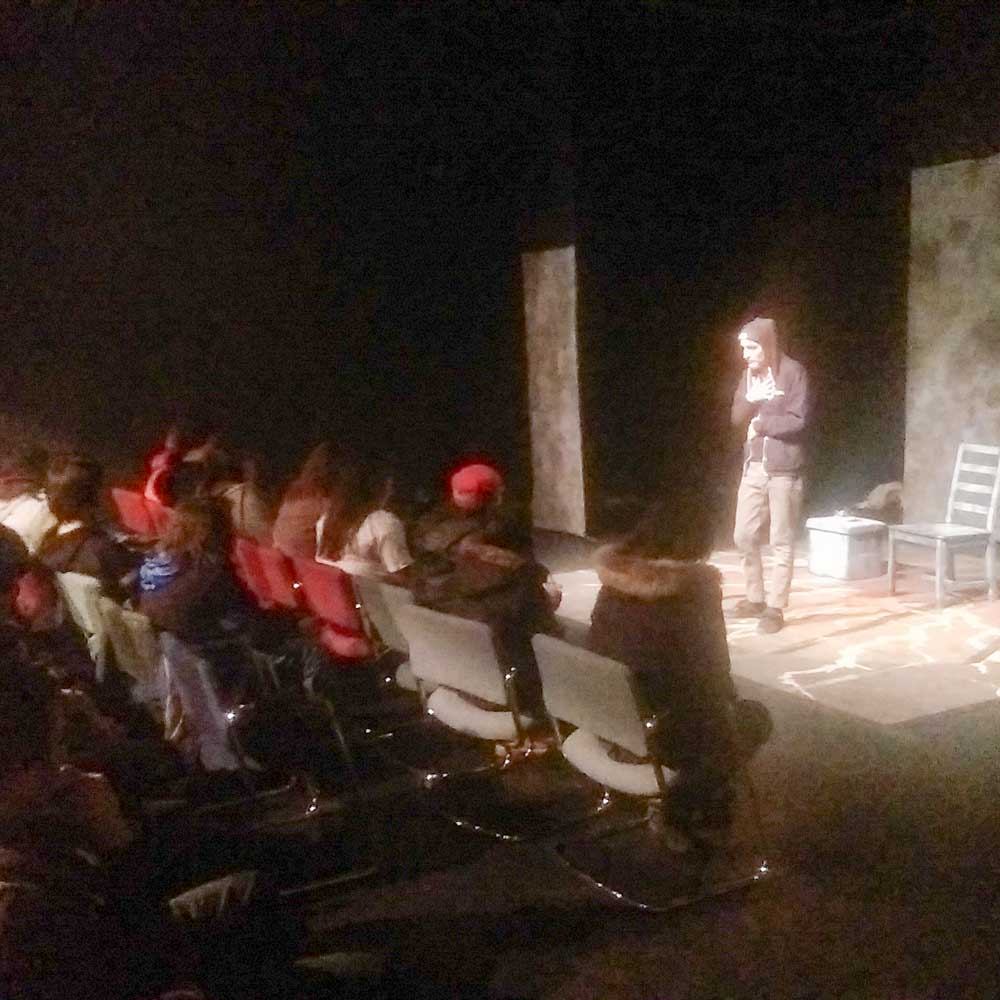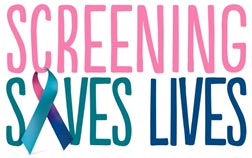MANITOWANING—If one word was to be used to describe Cliff Cardinal’s onstage performance in Huff this past week at the Larry E. Lewis Creation Centre that word is “intense.”
During his one-man show Mr. Cardinal brings several characters to life, racing through a breakneck paced 70-minute production (spoiler alerts) that begins with the startling revelation of Wind, the main protagonist, attempting suicide as the stage lights rise.
In Wind’s opening monologue, the audience’s gaze is locked in horrified fascination on the plastic bag as it puffs in and out with each breath.
The actor deftly pierces the fourth wall by acknowledging the audience as his imaginary friends/hallucinations, before enlisting one of his newfound ‘friends’ to rescue him from his current suicide attempt, entrusting the volunteer with the means of his demise and admonishing him not to give it back under any circumstances, while promising that his course of action has a perfectly rational explanation—and, as we journey along with Wind through his family’s beginnings, dragged along through a path of soul destroying barrage of alcohol and drug abuse infused with domestic violence, sexual abuse, profanity and mental health issues, horror arises to new levels as the realization that Wind’s chosen course of action takes on an irrational rationality.
The Thursday afternoon matinee performance attended by The Expositor was also attended by a full house of senior high school students from Wikwemikong. One young audience member could be heard to sum up the barrage of imagery conjured by Mr. Cardinal during his performance gasping “that’s f****d up.” It was. As the story of Wind and his brothers unfolds, your heart is ripped from your ribcage and brutally shoved back in your face. Some audience members could be seen getting up and leaving shaken during the performance.
The youngest sibling’s gift from Creator, the ability to send a wave of joy through a person by reaching his arms back and blowing on them, is not able to protect him from the violent sexual abuse of his eldest brother, the FASD afflicted Charles. That Creator’s gift is lost in the 10-year-old’s accidental suicide following his rape.
The loss of culture and mangling of stories related by the characters in the story is particularly poignant taken in the context of the Truth and Reconciliation process—although the TRC is not directly referenced in the production.
Mr. Cardinal’s play (he wrote the script over the course of a year) is set on a remote reserve, the kind of community beset with an epidemic of suicides, murders and abuse. The kind of community that remains far outside the comprehension of most viewers of the six o’clock news. But surprisingly, Mr. Cardinal, who hails from a successful thespian family and was raised in Los Angles and urban Alberta, has little personal experience with the rez life directly—surprising because the writer/actor’s script dialogue and the events and environment he paints upon the canvas of the stage resonate with authenticity for those who do.
Chatting with the artist following his performance Mr. Cardinal admits that most of what he so deftly brings to life on the stage has come from acquaintances and research—he goes on to add, “and of course I am an Indian.”
The unseen villain of ‘Huff’ is Trickster. It is telling that one of the young Anishinaabe audience members asks Mr. Cardinal if Trickster is a Metis legend. He responds that Trickster exists in many First Nations cultures, including the Anishinaabe. The student could be forgiven for not recognizing the Trickster familiar in local stories in the malevolent spirit that inhabits Huff. There is a reason that the elders admonish the children not to speak his name when the blanket of snow is not on the ground, lest they attract his attention. Trickster is not a pleasant companion.
“Don’t do anything you see in this play,” admonishes Mr. Cardinal as he chats with the students following the play. “Don’t even repeat the jokes.” So sombre is the audience response to that caveat he has to add, “that was a joke.”
As the play draws to a close, and Wind approaches the audience member for the return of his freezer bag and duct tape, the audience leans forward on their seats, holding their breath.
“Does anyone ever give the bag back?” asks veteran Wikwemikong actor Greg Odjig.
“No,” replies Mr. Cardinal, before qualifying his answer, “the audience always steps in to stop them if they try.” Stage manager Jennifer Stobart adds, “at one show there was a lady who was so mesmerized by Cliff’s performance that you could see her just automatically reaching for the bag, but the audience began to shout at her.”
If there is a redemption or hope contained within this play, perhaps that audience reaction is where it lies.




